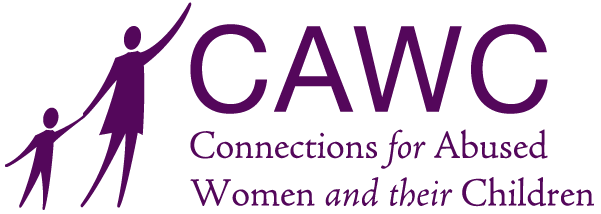Kitchen Table Conversations are lunch-and-learns lead by staff and industry leaders to discuss all topics related to domestic violence. We’ve recently launched this initiative and look forward to sharing content on this page quarterly. Sign up to be notified of when new conversations are happening and be sure to join us at the kitchen table.
This Is Why We March
In this essential history lesson, CAWC’s resident domestic violence experts, Megan Rosado and Colleen Montgomery discuss how the formation of CAWC, as the first domestic violence program in the city of Chicago, wasn’t random. Its place in history intersects many social movements, prior to and through the late twentieth century. Even now, the need is just as great, and so we continue to march to end domestic violence.
Click here to access the presentation pdf which includes the sources referenced in the video.
Additionally, you can download the chant sheets discussed in this webinar:
1. CAWC Chant Sheet
2. Take Back the Night Chant Sheet
Find additional background and information in our recent blog posts:
1. Why Are Marches, Rallies, and Protests Important (read here)
2. Three Things Public Demonstrations Accomplish for Human Rights (read here)
One Year After the Fall of Roe, Another Domestic Violence Woe
The Supreme Court’s decision to overturn Roe v. Wade (in 2022) continues to threaten access to reproductive justice for all. This threat is compounded for domestic violence survivors who often already experience a loss of access to their own decision-making.
In this Kitchen Table Conversation, CAWC’s domestic violence experts, Colleen Montgomery and Megan Rosado, unpack the intersections of reproductive justice and domestic violence and the effects of the Supreme Court’s decision. Together, they explore how the abusive tactics of power and control are replicated by legislation restricting access to reproductive justice and choice.
The mission statement for this discussion: The fight against reproductive justice is rooted in racism, sexism, and classism, and reinforces the domestic violence dynamics of power and control, disproportionately negatively affecting women, BIPOC, LGBTQIA2S+ folx, and low-income families. Learn more at about reproductive justice at our blog.
Access the presentation pdf which includes the sources referenced in the video.
Additionally, you can download the Power and Control Wheels discussed in this webinar:
1. Power and Control Wheel
2. Culture (Power and Control Wheel)
Hollywood’s Greatest Love Stories or Greatest Red Flags
It’s no secret that our ideas about love and relationships are influenced by our consumption of entertainment and media. Stereotypes play out across all the stories we’re told and sometimes form toxic ideas around how love should be expressed: the hero, the rescued, the bad-boy turned good, the good-girl turned bad… So many of these Hollywood narratives are filled with more red flags than loving gestures. But have you trained your eyes and your heart to recognize which is which?
Watch the latest Kitchen Table Conversation with CAWC’s trauma-informed experts: Outreach Services Coordinator, Colleen Montgomery, and Training and Education Coordinator, Megan Rosado, and our special guest, HPOP Coordinator/Family Trauma Therapist, Alexandra Araujo Gonzalez, to discuss how the relationships we see in movies can impact how we approach relationships in real life. In this conversation, we specifically talked about how the “love stories” in Beauty and the Beast, Grease, and The Notebook may include red flags.
Click here to access a PDF version of the presentation with sources. Additionally, an overview of this topic can be found on our blog.
How the Language You Use Can Save Lives
- Historical perspectives of domestic violence
- Ways domestic violence shows up in our culture
- Talk about domestic violence to save lives
Presented by CAWC staff experts, Megan Rosado and Colleen Montgomery.
Click here to access a PDF version of the presentation with sources.
Gifts by check or credit card
Many individuals make donations to CAWC at various times throughout the year. Checks can be sent to:
CAWC – Attention: Development
1116 N. Kedzie Avenue, 5th Floor
Chicago, IL 60651
Or you can make a gift online.
